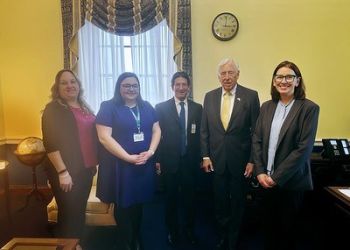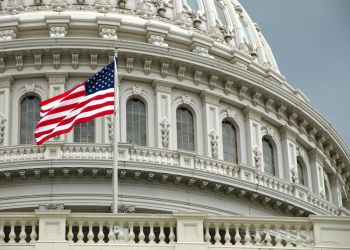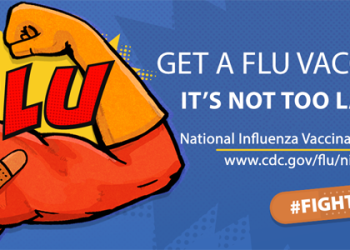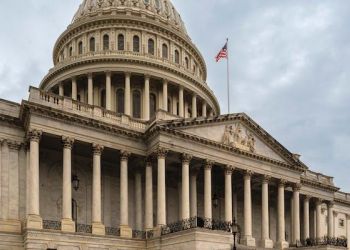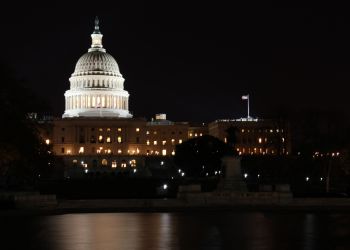The word “unprecedented” can be overused; however, we are undoubtedly living through unprecedented times. As the 2019 novel coronavirus (COVID-19) continues its spread across the country, NACCHO staff including its government affairs team are continuing to serve our members, gathering information on the needs of local health departments (LHDs), developing policy and funding proposals to support them, and advocating with Members of Congress and the Administration to convey the importance of the work of LHDs on the front lines of this response. The work is ongoing, but we have already had some great successes. Below are the details of the pieces of legislation Congress has already passed and the President has signed to respond to COVID-19. The NACCHO government affairs team held a webinar “NACCHO Government Affairs: COVID-19 Response Overview” on April 22 to provide an overview of this information and answer member queries. A recording and the slides are available.
More Congressional action is still needed to address the pandemic. If you just want to know how to take action and support the local health department response to COVID-19, go to NACCHO’s website to personalize and reach out to your Members of Congress.
NACCHO began advocating on behalf of LHDs with Congress and the administration specific to the COVID-19 response in January, highlighting the need for attention and resources to be placed on this emerging infection. After working for weeks behind the scenes, on February 24, we coauthored a principles document highlighting the needs of health departments in the response, after which the administration made their first request for resources—about $1 billion in new money—to address the virus.
We continued to push Congress, not only for more robust funding, but to have specific dollars set aside for LHDs. NACCHO members were key to this advocacy: On February 26, NACCHO held its annual Hill Day, organizing over 100 meetings between local health officials and Congressional leaders, as well as with key administration officials and White House staff. We also launched a “Virtual Hill Day” where NACCHO members from across the country communicated with their Members of Congress to amplify these messages.
This advocacy was successful: on March 6, the first COVID-19 bill, the Coronavirus Preparedness and Response Supplemental Appropriations Act (HR 6074), became law. It was a $8.3 billion dollar package, with nearly $1 billion set aside for local and state health departments, and a 30-day clock to get some of the the funding out the door.
However, as COVID-19 raged on, it was clear that more would need to be done. A second law, the Families First Coronavirus Response Act (HR 6201) passed on March 18, tackled additional challenges we alerted Congress about—financial barriers that kept individuals from following the advice of their LHDs, including testing costs, as well as costs associated with quarantine, isolation, and school closures. These policy changes made it easier for people to follow the advice and directives of LHDs.
As the brunt of the virus and the response grew, we continued to push for the support our members needed. Again, we were successful—the third spending package (HR 748) for COVID-19, signed March 27, included an additional $1.5 billion set aside for local and state health departments, as well as billions more for local and state government relief that can support health departments. The law also included $500 million to modernize the public health data infrastructure, with a specific call out for LHDs to receive funding, another priority of NACCHO.
On April 24, Congress passed another $484 billion pandemic response package: the Paycheck Protection Programs and Health Care Enhancement Act (HR 266), sparked by the depleted funds for the small business disaster loan Payment Protection Program (PPP). The bill included $321 billion for the PPP, $75 billion in additional funding for hospitals, and $11 billion for a host of activities including testing and contact tracing by states and localities.
NACCHO continues to push for the needs of LHDs. In the near term, that includes support for a surge of contact tracers, as well as to scale up systems to be ready to deploy a future COVID-19 vaccine, and pushing for predictable funding to support broad-based public health infrastructure investments to strengthen LHDs for years to come.
Experts have asserted that the public cannot be protected from COVID-19 without access to widespread testing as well as intensive contact tracing and appropriate quarantine and isolation procedures. On April 16, NACCHO released a position paper Building COVID-19 Contact Tracing Capacity in Health Departments to Support Reopening American Society Safely. The paper recommends development of a formula for distribution of the surge workforce for contact tracing that takes into account a baseline number of contact tracers as well as a per capita calculation to ensure that smaller communities are not inadvertently missed in this national effort to scale up contact tracing. In addition, on April 30, NACCHO, the Association of State and Territorial Health Officials, the Association of Public Health Laboratories, the Council of State and Territorial Epidemiologists, and the National Coalition of STD Directors delivered a Joint Public Health Contact Tracing Workforce Request to Congress, requesting at least $7.6 billion to fund contact tracing efforts nationally through the governmental public health system.
NACCHO is also working on preparing for the long-term effects of COVID-19 on the functioning of LHDs and the need to strengthen the governmental public health system as a whole, by leading a coalition of over 60 partners to push for the establishment of a public health loan repayment program to help recruit and retain talent in public health departments. On April 23, Rep. Jason Crow (D-CO) and Energy and Commerce Health Subcommittee Ranking Member Michael Burgess (R-TX) announced the introduction of the Public Health Workforce Loan Repayment Act (H.R. 6578). The bill would establish a Public Health Workforce Loan Repayment Program to promote the recruitment and retention of public health professionals at local, state, and tribal health departments. The creation of a public health loan repayment program is a major priority for NACCHO and was a key item on our 2020 Legislative Agenda. NACCHO continues to advocate for such a program to be included in future legislation to respond to COVID-19.
COVID-related legislation continues to fly; stay tuned to our News from Washington newsletter for all the updates. More on each of these actions and priorities can also be found on our website https://www.naccho.org/advocacy/activities.
Please contact Ian Goldstein, NACCHO Senior Government Affairs Specialist with any questions.


